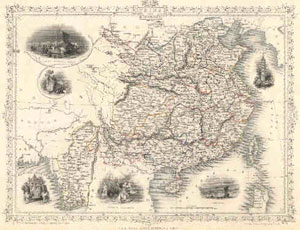Please kick left mouse on this link to read: http://news.xinhuanet.com/english/china/2011-12/20/c_131317549.htm
President Ma Ying-jeou, the Beijing government’s preferred candidate who has steered a path of warmer ties and direct economic links with the mainland, is suddenly in a tough race for reelection, polls from Taiwan show.

(Patrick Lin/AFP/Getty Images) - Supporters of Taiwan's ruling Nationalist party wave national and election flags at a rally in Taipei in November. President Ma Ying-jeou is seeking the second and last four-year term on behalf of the ruling Kuomintang.
Ma’s chief opponent is Tsai Ing-wen, chairwoman of the Democratic Progressive Party, which officially backs the independence of Taiwan. Tsai has raised the Beijing government’s ire for her refusal to publicly support an informal, unwritten, 20-year-old agreement between the two sides stipulating that there is just “one China.”
For months, the election was expected to hand an easy reelection victory to Ma, from the Kuomintang, or Nationalist Party, after he steered the island through the worst of the global recession and secured a new trade deal with China. But the race became more unpredictable with the entry last month of a third candidate, James Soong, a former Nationalist Party stalwart who founded the People First Party.
Soong is expected to draw votes from Ma, and polls now suggest a dead heat between Ma and Tsai, who has emphasized economic issues and the gap between rich and poor, as well as the problems of farmers who have not benefited from increased trade with China.
Ma stumbled when he suggested that Taiwan might be ready to sign a peace accord with China within 10 years. He later rolled back the remarks, but the critical response suggested that many Taiwanese saw him as moving too close too quickly to the Communist government in Beijing.
During Ma’s term, relations across the volatile Taiwan Strait have been, as he put it in an interview, “the most stable of anytime in 60 years.” But the prospect that he might lose to a candidate of the independence-minded Democratic Progressive Party has raised fears among some analysts in China of renewed tension, which might once again draw in the United States. This last happened in 1996, when China fired missiles near Taiwan and the Clinton administration sent additional naval ships to the region as a show of U.S. determination not to allow China to intimidate Taiwan.
Caught off guard
While clearly concerned about the turn of events, Beijing’s authorities seem uncertain how to respond.
Chinese leaders and others on the mainland have made clear their dislike of Tsai’s party and their preference for Ma’s reelection, but they also fear that any blatant interference might create a backlash among Taiwanese voters. That means it is unlikely, in the view of analysts, that China would stage a repeat of the provocative missile tests or the 2000 warning by Chinese Premier Zhu Rongji, who bluntly cautioned Taiwanese not to “vote impulsively.”
One analyst, Dean Cheng of the Heritage Foundation in Washington, said that China’s leaders were most likely caught off guard by the sudden shift in Ma’s fortunes and that the military has probably not set in place a response.
For months, the election was expected to hand an easy reelection victory to Ma, from the Kuomintang, or Nationalist Party, after he steered the island through the worst of the global recession and secured a new trade deal with China. But the race became more unpredictable with the entry last month of a third candidate, James Soong, a former Nationalist Party stalwart who founded the People First Party.
Soong is expected to draw votes from Ma, and polls now suggest a dead heat between Ma and Tsai, who has emphasized economic issues and the gap between rich and poor, as well as the problems of farmers who have not benefited from increased trade with China.
Ma stumbled when he suggested that Taiwan might be ready to sign a peace accord with China within 10 years. He later rolled back the remarks, but the critical response suggested that many Taiwanese saw him as moving too close too quickly to the Communist government in Beijing.
During Ma’s term, relations across the volatile Taiwan Strait have been, as he put it in an interview, “the most stable of anytime in 60 years.” But the prospect that he might lose to a candidate of the independence-minded Democratic Progressive Party has raised fears among some analysts in China of renewed tension, which might once again draw in the United States. This last happened in 1996, when China fired missiles near Taiwan and the Clinton administration sent additional naval ships to the region as a show of U.S. determination not to allow China to intimidate Taiwan.
Caught off guard
While clearly concerned about the turn of events, Beijing’s authorities seem uncertain how to respond.
Chinese leaders and others on the mainland have made clear their dislike of Tsai’s party and their preference for Ma’s reelection, but they also fear that any blatant interference might create a backlash among Taiwanese voters. That means it is unlikely, in the view of analysts, that China would stage a repeat of the provocative missile tests or the 2000 warning by Chinese Premier Zhu Rongji, who bluntly cautioned Taiwanese not to “vote impulsively.”
One analyst, Dean Cheng of the Heritage Foundation in Washington, said that China’s leaders were most likely caught off guard by the sudden shift in Ma’s fortunes and that the military has probably not set in place a response.

 Dec. 15 – China is facing increasingly hardened diplomatic attitudes from its neighboring countries, with four – Nepal, Myanmar, South Korea and Japan – allowing protests at varying degrees of what is considered Chinese belligerence.
Dec. 15 – China is facing increasingly hardened diplomatic attitudes from its neighboring countries, with four – Nepal, Myanmar, South Korea and Japan – allowing protests at varying degrees of what is considered Chinese belligerence.

